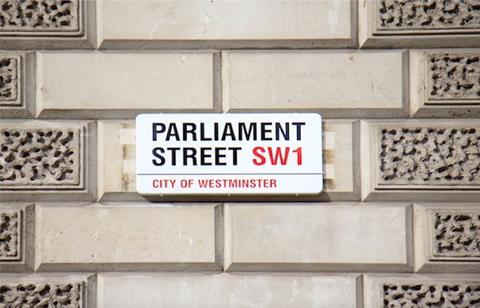
The Department of Health and Social Care has published a two-year, cross-government action plan on how to improve the available support for carers in England, including the consideration of dedicated employment rights specifically for carers.
Its Carers action plan 2018-2020: support carers today report, published on 5 June 2018, investigates issues that carers might encounter in the workplace, as well as detailing measures that the government, working alongside employers, relevant charities, providers and associations, will look to action in support of working carers.
The report's employment and financial wellbeing section highlights initiatives across four key areas: improving working practices, flexible working, returning to work and financial support.
With regards to tackling the improvement of working practices, the Department for Business, Energy and Industrial Strategy (BEIS) will consider the implementation of dedicated employment rights for carers, which will operate alongside existing employment rights, such as the right to request flexible working and the right to time off for family and dependants. A working group of four government departments will analyse this and further consider how any new carers leave proposal can be most effective.
The Department of Health and Social Care will further work with employer membership forum Employers for Carers on the creation of an employer benchmarking scheme that will help employers measure how robust their support arrangements for carers are. A pilot will be conducted in July 2018. Employers for Carers will also work with the government to extend its umbrella membership model to provide free resources to local authorities.
The Civil Service Employee Policy will liaise with government departments to build on its current policies to support working carers. This will include encouraging the use of its carers’ passport and adopting a carers’ charter.
The Defence People with a Significant Illness project, led by the Ministry of Defence, is additionally in the process of creating a policy to support carers in the armed forces as well as the management overseeing them, while NHS England is working with NHS Improvement to improve on the retention of carers in the national health service (NHS). This will include running masterclasses on how the NHS can be a more carer-friendly employer and encouraging greater family and carer flexibility in employment practice.
The Department for Work and Pensions (DWP) will further continue its work with non-profit organisation Business in the Community (BITC) to share best practice of carer policies and practices.
Around flexible working, The Department of Health and Social Care will work with the Timewise Foundation to promote best practice in the use of employment flexibilities to support carers. This includes the promotion of Timewise Foundation’s Carers’ Hub. This is a one-stop-shop for support, advice and flexible job opportunities and also provides best practice guidance on flexible working and flexible hiring practices.
The BEIS will continue with its plans for a flexible working taskforce to tackle issues around flexible working that are key to recruiting, retaining and progressing informal carers and other groups. There will also be an evaluation of the right to request flexible working in 2019.
To improve support around helping carers return to work, the Department of Health and Social Care will work with Carers UK to develop an e-learning resource to help carers recognise skills they have gained through caring and how to utilise them, while the Government Equalities Office (GEO) is working to support individuals who have left employment to act as carers to return to paid work at a level equivalent for their skills and experience.
The GEO will additionally work to increase opportunities for carers to return to work in the private sector, launching a £1.5 million fund to support projects for returning carers. The first set of grants will be awarded in summer 2018. The GEO has also published best practice guidance and a toolkit to help employers understand how to help returning carers re-enter the workplace, as well as how they can be supported. It has further commissioned research to generally understand more about returners. The qualitative results of this will be available shortly.
The GEO is to act as sponsors for returners awards at events which seek to reward employers who showcase best practice in this field. Three government departments will also create a package of analysis and research which aims to understand the key barriers for carers both in and returning to the workforce. This will then support policy priorities.
To improve financial support, the DWP will ensure that benefits for carers, such as the carers’ allowance and universal credit, meet the needs of working carers.
Raman Sankaran, chief commercial officer, growth and innovation at Simplyhealth, said: “We welcome the government’s recognition in its Carers action plan of the difficulties many carers face when juggling work with caring responsibilities. Promoting flexible working practices not only helps safeguard the health and wellbeing of carers, but also helps the performance of the business. Raising awareness of carers’ needs with employers is crucial to ensuring the introduction of working practices that will help carers secure, remain in and progress in work.”











